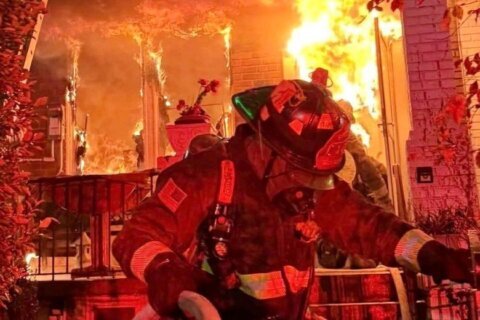WASHINGTON — Goods and services in D.C. will cost a bit more this fall, including calling an Uber and buying booze.
The D.C. Council passed its 2019 budget, increasing taxes to help cover its dedicated funding for Metro.
Council members gave initial unanimous approval on the $14.4 billion 2019 budget, which has built-in tax increases to cover the District’s $178.5 million annual commitment to fund Metro.
Chair of council transportation committee Mary Cheh, D-Ward 3, called it, “a crucial investment that’ll help ensure that this important institution which is part of the fabric of our city and serves so many of our residents endures for years to come.”
Council member Jack Evans, who chairs Metro’s Board, touted the District’s approach to funding the transit system, which he said differed from Maryland and Virginia which found existing money in other transportation plans.
“We came up to $100 million plus by saving money in the budget, by reallocating things but at the end of the day, we were short,” he said.
“In order to close that gap, the property taxes were raised.”
On commercial properties assessed at more than $5 million, the commercial tax rate will jump from $1.65 to $1.89 for every $100 of assessed value.
But it’s not the only thing businesses, residents and visitors will notice that costs more.
The city’s general sales tax is rising 0.25 percent to 6 percent .
Any alcohol purchased from a liquor store will be taxed 1.25 percent more for a total tax of 10.25 percent.
“We raised the ridesharing fee to 6 percent, which is the general sales tax in the District of Columbia,” Evans said. “Those are hard decisions to make. But we covered it. And Metro will be on the way, I hope, to being a better system.”
On a $10 ride, that translates to an extra 60-cent tax the passenger must pay in D.C.
Council member Brandon Todd, D-Ward 4, did not support tax bump on ride-hailing services like Uber and Lyft.
“I do have some concerns, however, regarding the funding proposal to increase all ridesharings from 1 percent to 6 percent including pooled rides,” Todd said while expressing an interest to further discuss the idea.
The new taxes go into effect Oct. 1.
The budget also establishes a new tax credit for small retail businesses, giving a refundable credit on franchise taxes for businesses with less than $2.5 million in annual gross revenue.
The budget includes a $94 million increase in funding for the District of Columbia Public Schools and public charter schools, including more money to make early child care more affordable and $2.5 million to fund early learning tax credits. The budget for education would be $1.73 billion.
The budget adds $15.6 million to subsidize affordable housing through the District of Columbia Housing Authority and gives $63.2 million to D.C. Public Library operations.
Read the final budget plan.








